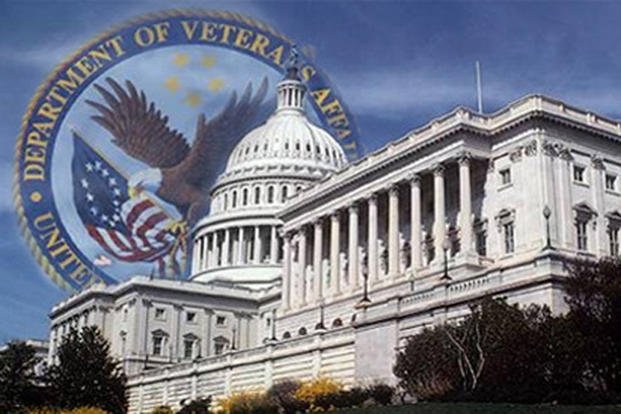The Forever GI Bill, also known as the Harry W. Colmery Veterans Educational Assistance Act of 2017, became law on August 16, but the VA hasn't said too much about when the many changes in the law will become effective. Last week they released their first statement telling us when we can expect to see some of these changes take effect.
By our count, only four of the ten immediate changes have actually been addressed by the VA. But the removal of the 15 year time-limit for many people to use their GI Bill is on that list, and since that affects most people, it is a good start.
Changes Enacted By The VA
Lifting The 15-Year Time Limit To Use GI Bill
The legislation eliminates the current 15-year time limit on use of the Post-9/11 GI Bill for those who were discharged on or after Jan. 1, 2013. This means that if you are a recent veteran you have forever to use your GI Bill benefits!
This removal of the 15 year time limit also applies to surviving dependents using the Fry Scholarship. Surviving spouses and children who first became eligible after Jan. 1, 2013 will have no time limit to use their Fry Scholarship benefits.
To sum up who is and is not eligible for the new "forever GI Bill":
- If you are a veteran who was discharged before Jan. 1, 2013 you will see no changes, you still have 15 years to use your GI Bill and your housing allowance will remain unchanged.
- If you are a veteran who was discharged AFTER Jan. 1, 2013, you now have forever to use your GI Bill benefits. Your housing allowance will also remain at the higher rate.
- If you are on active duty, have never used your GI Bill and will be discharged on or after Jan. 1, 2018, you have forever to use your GI Bill, BUT your housing allowance will be at the lower rate (approximately $100 less per month), UNLESS you start using your GI Bill before the end of the year.
According to the VA, there is no action you need to take; if eligible, the 15 year time limit is simply removed for you.
So, if you are currently on active duty OR got out after Jan. 1, 2013 AND you haven't used your GI Bill yet, USE IT! You are in the small group of people who get the best of both worlds! You will no longer have a time limit to use your GI Bill, and you will get at least $1,000 more a year than if you wait until after Jan. 1, 2018 to begin using your GI Bill.
GI Bill Benefits Restored For Those Who Attended Some Colleges That Closed
If you went to a school that closed or lost accreditation and you didn't get credit for the classes you took, the GI Bill that you used for those classes will be given back to you. This is effective for any school closings after January 1, 2015.
The VA says that they will soon create a website with instructions, information, and a form to complete and return if you are eligible to have your benefits restored.
REAP Recipients Now Eligible For Post-9/11 GI Bill
The REAP program is scheduled to end in 2019, but the new law allows some REAP participants to switch over to the Post-9/11 GI Bill. The VA says they are in the process of identifying the approximately 2,800 reservists affected and will send them letters with instructions on how to get the Post-9/11 GI Bill.
Expansion Of Technical Training
Online training is now approved at career, vocational, and technical schools.
Changes In The GI Bill That The VA Has Not Mentioned
These changes were in the new law, and were supposed to be effective when the law was signed. The VA has not made any statement on when these changes will be effective.
Reimbursement For Testing Fees
Under the new law, you will normally be charged less GI Bill entitlement for taking standardized tests such as CLEP, GMAT, etc.
Benefit Tiers
Currently, your GI Bill benefits are based on the amount of active-duty time you have. If you have less than 36 months active duty, you may get less than the full amount of GI Bill benefits.
The new law makes some minor changes to this - specifically people who serve at least 90 days but less than 6 months on active duty will see their benefits increase from 40 percent to 50 percent of the maximum amount payable, people who serve at least 6 months but less than 12 months will see their benefits increase from 50 percent to 60 percent of the maximum amount payable.
This should result in at least $2,000 more annually in tuition for most people in those benefit tiers.
Fry Scholarship
All Fry Scholarship recipients are now eligible for the Yellow Ribbon Program.
Transferred Benefits Changes
Some changes will be made to the rules about transferring the Post-9/11 GI Bill to make it easier to reallocate transferred benefits if the sponsor or dependent passes away.
Minor Housing Allowance Changes
- Housing allowance will be based on the campus location where you attend classes, not necessarily the main campus.
- Reservists who are mobilized in the middle of a month will have their GI Bill housing allowance prorated. The previous law would stop the GI Bill housing allowance for the entire month if you were called up for at least one day during any month of school attendance, and no matter what day of the month you were mobilized on.
All Purple Heart Recipients Get Full Benefit
Anybody who receives a Purple Heart will get the full GI Bill amount no matter how long they served on active duty.
Future Changes
These changes to the GI Bill will become effective at a later date.
New GI Bill Recipients Will Get A Smaller Housing Allowance
There was a little-noticed provision in the 2015 military budget that slows the rate of increase in Basic Allowance for Housing (BAH) so that active-duty BAH no longer pays the full amount of the housing cost.
As a result of that law, active-duty BAH is being reduced 1 percent every year from 2015 to 2019 so that by 2020 BAH will only cover 95 percent of a military member's housing cost. The VA's Monthly Housing Allowance, which is paid to GI Bill recipients, wasn't affected by the earlier legislation.
This new law changes that. Effective Jan. 1, 2018, the GI Bill housing allowance will also decrease. This will mean that anyone eligible for the GI Bill after January 2018 will get an average of $100 a month less housing allowance.
This affects only those who begin getting GI Bill benefits after Jan. 1, 2018. If you are currently getting GI Bill benefits, you will see no changes.
Dependents' Education Assistance (DEA)
Dependents' Education Assistance (DEA) monthly payments will increase by about 50 percent, but the maximum number of months that a dependent can get DEA decreases from 45 to 36. This is effective Aug. 1, 2018.
More Guard, Reserve Members Now Eligible
Reservists called to active duty under sections 12304(a) (when a governor requests federal assistance in responding to a major disaster or emergency), or 12304(b) (when the DoD mobilizes reservists in support of a combatant command) are now eligible. Previously, only reservists called to active duty by presidential order as a result of a national emergency were eligible. This applies to all reservists mobilized after Aug. 1, 2009, but reservists can receive payment only for classes that start after Aug. 1, 2018.
STEM Scholarship
There is a big push these days to get veterans enrolled in STEM (Science, Technology, Engineering, and Mathematics) programs. This new GI Bill creates the "Edith Nourse Rogers Scholarship."
This program will pay veterans up to $30,000 if they are enrolled in a STEM program, have used up all their GI Bill benefits, and have at least 60 semester/90 quarter hours credit toward a STEM degree. It also will pay those who already have a STEM degree and are working on a teaching certification. This is effective Aug. 1, 2018.
High Technology Pilot Program
The new law also creates a High Technology Pilot Program that covers the full cost of high technology training not necessarily offered by a school. The details are sketchy, but the law says it is for people otherwise eligible under the GI Bill. Trainees will get the normal monthly housing allowance payments, and the VA has to monitor the companies giving the training to ensure the training results in gainful employment. This isn't scheduled to start until spring 2019.
More Changes Coming Soon
As you can see, there are several changes yet to be addressed by the VA, as well as several important future changes to be implemented. Watch this spot for updates.





